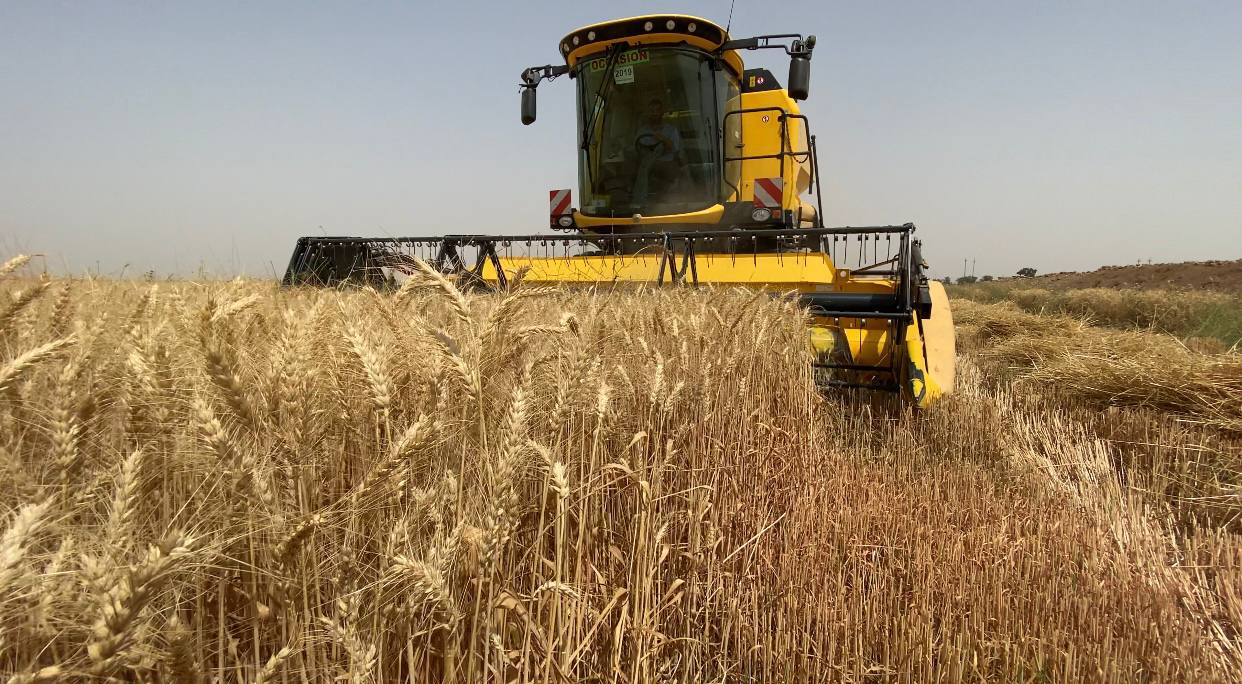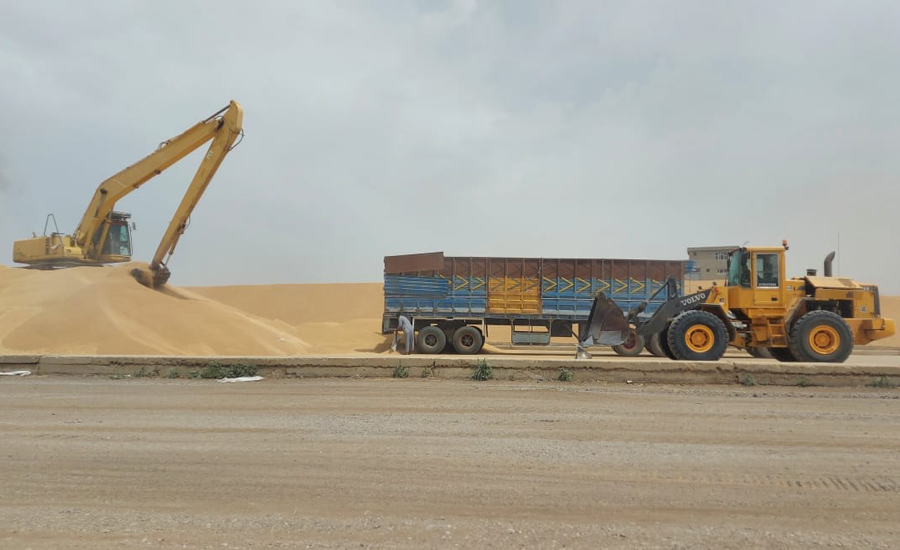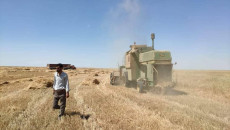Many farmers in Khanaqin district, southeast of Baghdad on the borders with Iran, are reluctant to give their wheat to the government and prefer selling it at a lower price in the private market.
The Iraqi government has begun receiving wheat from farmers in the Iraqi provinces through silos since the end of May and has decided to pay them 850,000 Iraqi dinars IQD ($575) per ton.
However, this year most of the Khanaqini farmers sold their wheat at a lower price than the government price in the market as they believe creditors have better memories than debtors.
Araz Majid, who has produced 50 tons of wheat, said he has sold some of the wheat and will sell the rest in the next few days at 750,000 IQD per ton.
“I don't trust the government. It hasn't paid me 16 million dinars for previous years. I'd rather sell it in the market, although payment will be covered late, still not like the government,” said Majid.
This is like the Kurdish proverb that says, "Eight in the fist, not nine in the plain.”
I don't trust the government. It hasn't paid me 16 million dinars for previous years' wheat
Another reason is that he has to take his wheat to the silo of Baquba, the center of Diyala province.
The Iraqi government has not yet paid farmers for their grains delivered to the state silos in 2014 and 2015, one of the reasons being that the imported not produced wheat was mixed with farmers' wheat and sold to government silos.

“The government must understand that we spend a lot of money to deliver our crops, including fertilizers, seeds, pesticides, beside plowing the farms... I have lost 25 million dinars this year alone because I spent it and there was no rain,” Majid added.
In Khanaqin district, 1,000 farmers are registered with the Khanaqin Agriculture Office, of which 400 farmers plant wheat and barley annually.
Kamran Abdullah, director of agriculture in Khanaqin district, told KirkukNow that most farmers are not willing to give their wheat to the silos this year.
According to KirkukNow, those traders who bought wheat from farmers take part of it to the silos and earn 100,000 IQD per ton from the transaction while others store it.
In Khanaqin district, which is a disputed area between the federal and Kurdistan Regional Government KRG, part of Diyala province, 13,000 acres of land were planted with wheat this year, almost half of last year.
Akram Hatem, another farmer in Khanaqin, said, “This year I have planted only 300 dunams (acres) of wheat because the water level of the Alwand and Sirwan rivers has decreased. Last year I had 450 tons of wheat.”
“I sell my wheat in the market for 750,000 dinars a ton and I don't give it to the government... because I haven't received last year's money yet... I will receive the money at least earlier in the market,” Hatem said.
I sell my wheat in the market for 750,000 dinars a ton and do not give it to the government
"We always need money to continue planting and agriculture. I have lost 30 million dinars this year. I cannot wait so long for the government," Hatem added.
“Very few farmers have registered to take their wheat to the silos... the main reason for the delay is their payment,” said Khanaqin agriculture director.
Last year, 36,000 tons of wheat was produced in Khanaqin district, but this year the crops has decreased to 15,000 tons, according to agricultural statistics.
"I ask farmers to hand over their wheat to government silos if they have not sold it in the market, because this year Iraq is facing high wheat prices and flour shortages, with possibility of paying them immediately after receiving wheat."






